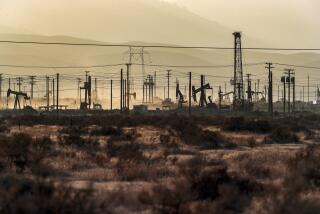San Diego city attorney assails Carson NFL project
- Share via
San Diego’s city attorney questioned the environmental review of the stadium the San Diego Chargers and Oakland Raiders hope to build in Carson, as verbal sparring over the project continued Thursday.
In a radio interview on Mighty 1090 in San Diego, Jan Goldsmith described the Carson project’s review as a “little 19-page pamphlet” and wondered about its legality.
“Whether that really complies with the law or not, I’m not sure, and we’re looking at that,” he said.
Goldsmith also raised doubts about the ballot initiative in support of the $1.7-billion project that Carson’s City Council unanimously approved in April. The measure changed city zoning to accommodate the fast-tracked stadium and allowed it to bypass time-consuming and expensive environmental reviews that would otherwise be required under California’s Environmental Quality Act.
“Was that really a citizen’s initiative, or was that some conspiracy between the city and the Chargers?” Goldsmith said. “They can’t do that. They can’t have the city be a partner in the citizen’s initiative.”
Sunny Soltani, Carson’s city attorney, disputed Goldsmith’s characterization of events.
“The City Council adopted the Carson initiative in full compliance with the law and only after the community demonstrated overwhelming support for the project,” she said. “The initiative was comprehensive and contained appropriate environmental analysis.”
A spokesman for the San Diego city attorney’s office told The Times that the city is not planning to litigate the matter.
A report commissioned by Carson earlier this year found the stadium project on the 168-acre site of a former landfill had “some increased environmental and land use related impacts” but offered “significant fiscal benefits” to the city.
Carson adopted a full environmental impact report in 2006 for the mixed-use Carson Marketplace development that included up to 1,550 homes on what is now the proposed stadium site.
The state’s Department of Toxic Substances Control, which is overseeing remediation of the former landfill that occupied the stadium land, has supported the project as an “ideal” use for the property since its announcement in February. That included approving the complex land transfer in May and a letter earlier this month to one of the project’s attorneys confirming the site’s suitability for a stadium once the remediation is complete.
Mark Fabiani, point man on stadium issues for the Chargers, linked Goldsmith’s comments to the hurried 6,000-page draft environmental impact report that San Diego recently produced to bolster its plan to build a new stadium and keep the team. The Chargers have assailed the effort as rushed and inviting legal challenges, during increasingly contentious public exchanges between the team and the city.
Fabiani said that Goldsmith’s comments should be viewed in context, including the report.
“He has wrongly told the city that it can produce an EIR in only three weeks with just four days left for incorporating thousands of public comments,” Fabiani said.
During the radio interview, Goldsmith touted Carson’s rival stadium plan in Inglewood as a “first-class palace” and a project that could “make a worldwide statement.”
Backed by St. Louis Rams owner Stan Kroenke, the Inglewood proposal used a ballot measure to avoid the environmental review process, too.
“Our biggest risk,” Goldsmith said, “is [Chargers owner] Dean Spanos being brought in as a tenant.”
More to Read
Go beyond the scoreboard
Get the latest on L.A.'s teams in the daily Sports Report newsletter.
You may occasionally receive promotional content from the Los Angeles Times.











